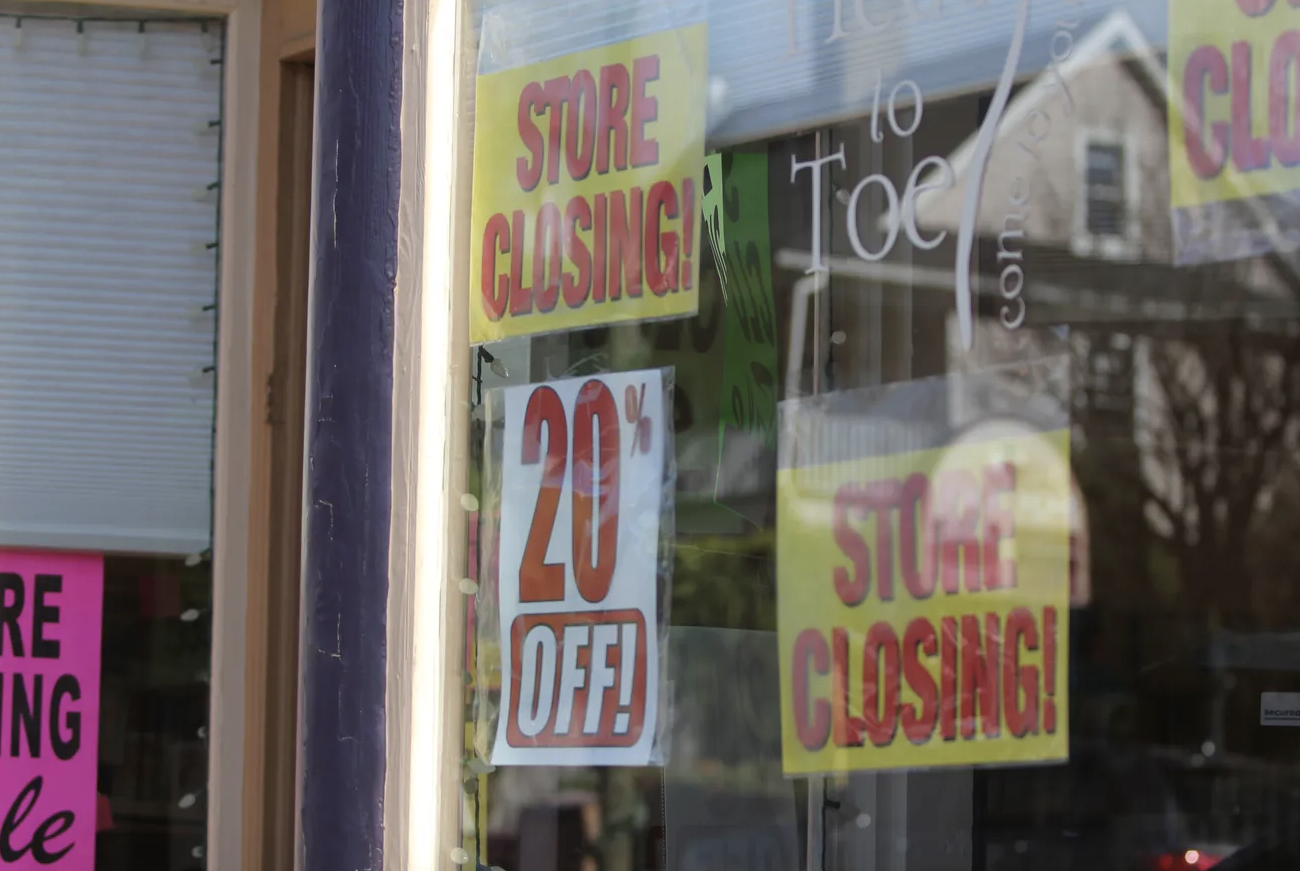Featured Guest
You’ll find this guest among our growing roll of Urban Champions.
-
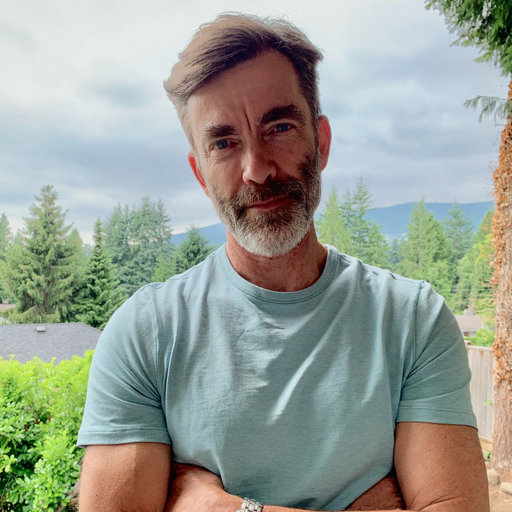
Julian Somers
Professor, SFU Burnaby
-
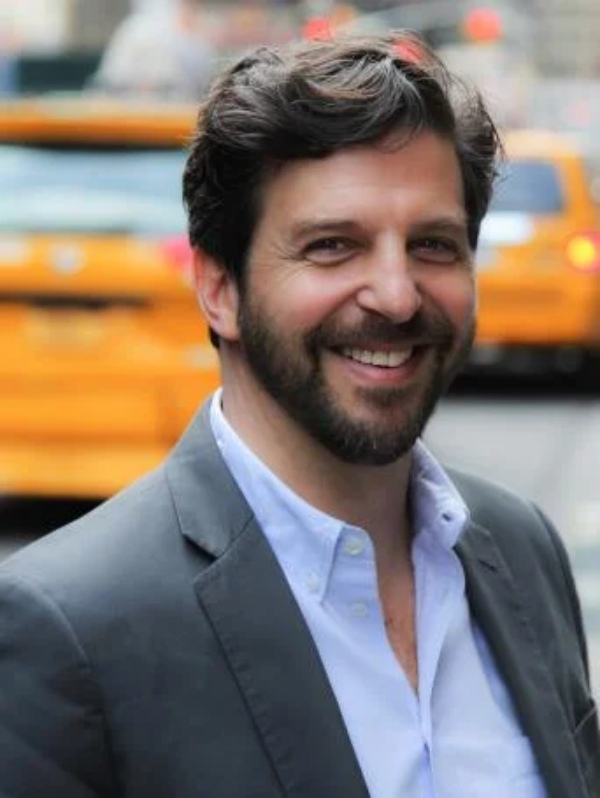
Tim Tompkins
Principal, SharedCitySharedSpace
-
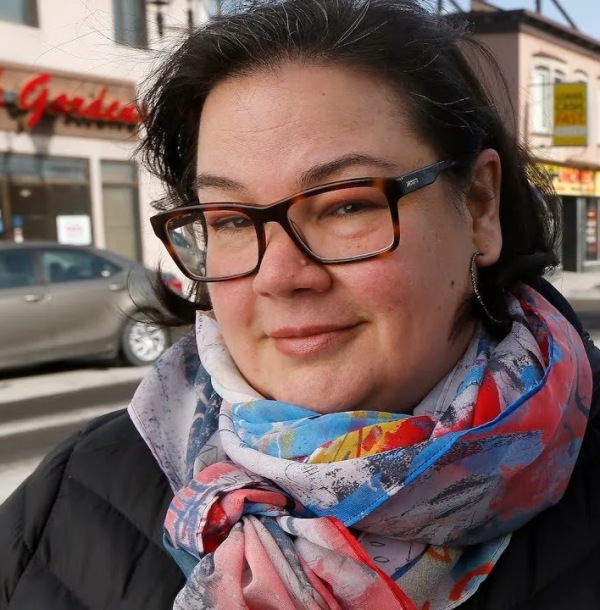
Nathalie Carrier
Executive Director, ZAC Vanier BIA
-
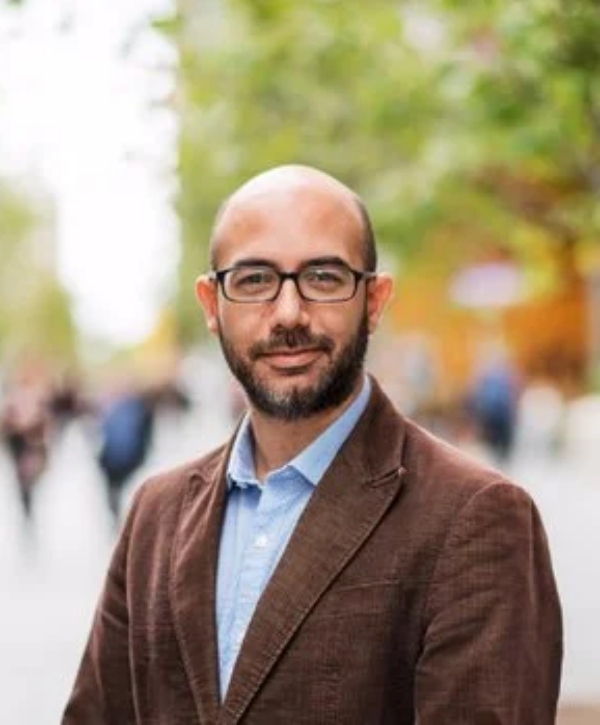
Nader Shureih
Vice President, Business Development – Public Sector · Environics Analytics
5 Key Takeaways
A roundup of the most compelling ideas, themes and quotes from this candid conversation
|1. Main Streets are the spine of urban life As small businesses across Canada are attempting to recover from the toll of the COVID-19 pandemic, the problems they face are an indication of the broader challenges of fostering belonging and negating exclusion in urban life. Nathalie Carrier, Executive Director of the ZAC Vanier BIA, began the discussion by noting that many small businesses have functionally taken on a “first-responder” role in managing homelessness and public health issues. 2. There is a need for democratised data Nader Shureih, a VP at Environics Analytics, a leading data services organization, stated that all three levels of government have a significant interest in forecasting population trends using data analytics. With this significant volume in demand, there remain ongoing challenges in ensuring that such data is accurate, accessible, and can provide a clearer view on various vulnerable populations. For example, he noted that we need more data on who is socially vulnerable versus who is economically vulnerable, and the nuances of such populations, in order for both policymakers and businesses to make well-informed decisions moving forward. 3. Evidence-based solutions to public health crises are key When asked about the intersection of data and policy regarding the socio-economic challenges faced by main streets today, Dr. Julian Somers, a clinical psychologist and specialist in addiction, emphasised the need to create evidence-based policy frameworks. He noted that in addition to resourcing challenges, governments at all levels struggle with political will and “compassion fatigue” in instituting solutions which are demonstrated to help unhoused persons recover from mental illness and drug addictions, find permanent shelter, and foster a sense of competency and belonging. He stated the importance of an even distribution of social services and consistent support for these populations. 4. How should governments balance rigorous and flexible policy approaches? Tim Tompkins, Principal of the New York-based SharedCitySharedSpace, noted that governments must find ways not just to help local businesses, but also contribute to the vibrancy of communities. As such, there is opportunity to learn from failures of policy on Main Streets – such those in land use and housing, as evidenced by the homelessness crises and unaffordability of housing. While there is a need for some underlying philosophies and operational rules in urban spaces, there must also be room for quickly adapting to new challenges. 5. It’s time to scale down There is often discussion on how to “scale up” policy or economic solutions, to have greater impact on a greater number of people. With the challenges faced by businesses, municipalities, and marginalised populations today, the time has come to think about how to structurally “scale down”. In order to save our main streets, the policy interventions regarding supportive housing, mental health, public health, addictions, business revitalisation and community management must all be seen as inter-connected, and must be tailored down to the realities and nuances of each locale.|Full Panel Transcript
Note to readers: This video session was transcribed using auto-transcribing software. Manual editing was undertaken in an effort to improve readability and clarity. Questions or concerns with the transcription can be directed to events@canurb.org with “transcription” in the subject line.
Full Audience Chatroom Transcript
Note to reader: Chat comments have been edited for ease of readability. The text has not been edited for spelling or grammar. For questions or concerns, please contact events@canurb.org with “Chat Comments” in the subject lin
From Canadian Urban Institute: You can find transcripts and recordings of today’s and all our webinars at https://canurb.org/citytalk
14:58:08 From Nick Hanson — Canadian Urban Institute : Welcome everyone! We invite you to say hello in the chat before we get started. Where are you watching from? 15:01:04 From Susan Vadori : Good afternoon I am Susan from City of Windsor 15:01:09 From Kayla Furlone : Hello! From Stouffville, ON. 15:01:28 From Abby Slater (she/her) to Hosts and panelists : Hello from Tkaranto! 15:01:42 From Abby Slater (she/her) : oops…hello from Tkaronto! 15:01:50 From Nick Hanson — Canadian Urban Institute : We have closed captioning enabled for today’s session. If you would like to turn it off, please click on the button at the bottom of your screen and disable . 15:02:27 From colleen christopherson-Cote to Hosts and panelists : good afternoon from Treaty Six Territory and the traditional homeland of the Metis – Saskatoon SK 15:02:40 From Naomi Martel : Hello from Sault Ste Marie, ON. 15:03:07 From Claire Brewster to Hosts and panelists : Aanii from Toronto 15:03:44 From Nick Hanson — Canadian Urban Institute : Please change your chat settings to “everyone” so that everyone can read your comments. 15:04:11 From Amy Britten : Hi Amy from Kitchener, located on the Traditional Territory/Ancestral Lands of the Haudenosaunee, Anishinaabe, and Neutral People. 15:05:09 From Sarah Woodgate : Hello Everyone. Sarah Woodgate (she/her) settler from Calgary, Mokinstis and Metis Nation Region 3 and home of many urban indigenous people. 15:05:17 From colleen christopherson-Cote : good afternoon from Treaty Six Territory and the Traditional Homeland of the Metis – Saskatoon, SK 15:06:00 From tymea sarkozy : Hello – Tymea from Toronto 15:06:13 From Nick Hanson — Canadian Urban Institute to Hosts and panelists : We hope this session is as interactive as possible, so please feel free to share comments, references, links or questions in the chat 15:06:32 From Nick Hanson — Canadian Urban Institute to Hosts and panelists : Sylvia Maracle Sylvia Maracle Consulting 15:06:38 From Stephanie Lowe : Hello from the traditional territories of the Sto:lo people, the Sumas First Nation and Matsqui First Nation. 🙂 15:06:38 From Nick Hanson — Canadian Urban Institute to Hosts and panelists : Sylvia Maracle is a Mohawk from Tyendinaga Mohawk Territories. Maracle recently retired after 45 years in the Ontario Federation of Indigenous Friendship Centres. Maracle is a member of the National Housing Council and is Founding Chair of Ontario Aboriginal Housing Services. Maracle’s work has focused on Indigenous urban experiences, ending violence, support for the 2SLGBTQI+ community, education, health and cultural revitalization. 15:08:04 From Mary Rowe to Sarah Woodgate and all panelists : hi 🙂 15:09:23 From Rachel Templeton : Hello from Treaty One Territory, Traditional Land of Ojibwe, Dakota, and Cree People, and historic homeland of the Metis (Portage la Prairie, MB) 15:09:48 From Shawn McNamara : Hello from London Ontario 15:10:39 From Garnet Borch : Greetings from Amiskwaciy Waskahikan (Edmonton) 15:12:27 From Nick Hanson — Canadian Urban Institute to Hosts and panelists : Justin Marchand CEO, Ontario Aboriginal Housing Services 15:12:37 From Nick Hanson — Canadian Urban Institute to Hosts and panelists : Justin is Métis and was appointed CEO of Ontario Aboriginal Housing Services (OAHS) in 2018. Justin has been with OAHS since 2009, and previously held the titles of Director of Corporate Operations and Programs Delivery Manager. Justin is on the board of the Canadian Housing and Renewal Association and is Chair of its Indigenous Caucus Working Group. Justin is also an active board member for the Coalition of Hamilton Indigenous Leadership and the Shingwauk Kinoomaage Gamig in Bawaating. Justin believes that housing is a fundamental human right and that when Indigenous people have access to safe, affordable, and culture-based housing this provides the opportunity to improve other areas of their life. 15:14:33 From Larry Bellerose to Hosts and panelists : Greetings from Bawating Sault Ste Marie 15:15:36 From Maxine Mease : Hello from Treaty 8 Territory in Northern BC the Dane-Zaa people are the traditional keepers of this land. 15:17:28 From Kevin Devitt : Not sure if this initiative will be discussed, but I FYI I just learned about this today: https://impact.canada.ca/en/challenges/indigenous-homes 15:17:57 From Nick Hanson — Canadian Urban Institute to Hosts and panelists : Margaret Pfoh Chief Executive Officer, Aboriginal Housing Management Association 15:18:09 From Nick Hanson — Canadian Urban Institute to Hosts and panelists : Margaret Pfoh is Tsimshian from the Eagle Clan of the Gitga’at First Nation. She bring more than 22 years of housing management experience and is currently the Chief Executive Officer for the Aboriginal Housing Management Association. She was the longstanding CEO of Mamele’awt Qweesome/To’o Housing Society (MQHS). During Margaret’s tenure in housing, her team spearheaded the creation of an Urban Village concept at MQHS—a full-spectrum rental housing concept, rooted in indigenous culture and welcoming to the whole community. 15:18:26 From Nick Hanson — Canadian Urban Institute : Margaret Pfoh Chief Executive Officer, Aboriginal Housing Management Association 15:18:32 From Nick Hanson — Canadian Urban Institute : Margaret Pfoh is Tsimshian from the Eagle Clan of the Gitga’at First Nation. She bring more than 22 years of housing management experience and is currently the Chief Executive Officer for the Aboriginal Housing Management Association. She was the longstanding CEO of Mamele’awt Qweesome/To’o Housing Society (MQHS). During Margaret’s tenure in housing, her team spearheaded the creation of an Urban Village concept at MQHS—a full-spectrum rental housing concept, rooted in indigenous culture and welcoming to the whole community. 15:19:44 From Abby Slater (she/her) : Hear hear—housing as a human right…. 15:20:39 From Nick Hanson — Canadian Urban Institute : Earlier this year, CMHC published a research brief about urban, rural, and northern Indigenous housing. https://www.cmhc-schl.gc.ca/en/professionals/housing-markets-data-and-research/housing-research/research-reports/housing-needs/research-insight-urban-rural-northern-indigenous-housing 15:20:48 From CUI : You can find the report Margaret is talking about here: https://www.ahma-bc.org/research-reports 15:21:37 From Sarah Woodgate : Brilliant! Mythbusting about sector capacity! 15:22:09 From Geoffrey Bodnarek : What do you think of the current income assistance legislation for on reserve members and does it need to change? 15:22:14 From Nick Hanson — Canadian Urban Institute : Read and endorse AHMA’s Indigenous Housing Strategy https://static1.squarespace.com/static/573e02ab62cd943531b23633/t/6201693e2bbce05d5cae4031/1644259653966/AHMA_BCURNIHousingStrategy_220124.pdf 15:22:18 From adriana dossena : Greetings from tkaronto, inhabitant of one dish one spoon treaty territory. Couldn’t agree more on advancing human rights via housing & integrated strategies 15:23:30 From Marie McGregor Pitawanakwat : Hi Kate, I experienced a glitch in my connection to the webinar. Would you be able to provide me a phone link to join in case this happens again? Thanks. 15:24:07 From CUI to Marie McGregor Pitawanakwat(Direct Message) : Hi marie! I will send you the number in one second 15:24:34 From Abby Slater (she/her) : Can the panelists give examples of some of the specific recommendations? 15:24:47 From Abby Slater (she/her) : Inclusion of course in all decisions…but what else? 15:25:13 From Nick Hanson — Canadian Urban Institute : Marie McGregor Pitawanakwat 15:25:20 From Nick Hanson — Canadian Urban Institute : Marie is an Anishinaabe-kwe elder of Wiigwaaskinaga. For government purposes, Marie is a status “Indian” registered with Whitefish River First Nation, part of the Robinson Huron Treaty, located at Birch Island, Ontario. Marie lives “off-the-grid” on traditional indigenous territory within the borders of Whitefish River First Nation, harvesting wood from the land for firewood, accessing lake water for domestic use, and in a “tiny house” in the shelter of a cedar grove. Marie holds a BA from Trent University in Aboriginal Studies; an MBA from Queen’s University; and a CELTA from Cambridge. Her work as a university instructor, evaluation researcher, academic department head, training services entrepreneur, and as an ESL instructor has taken her to Northwestern and Northeastern Ontario, Northern Manitoba, and Japan. 15:25:35 From CUI to Marie McGregor Pitawanakwat(Direct Message) : i have emailed you the phone information 15:25:57 From Stephanie Lowe : Where will the recording of this session be saved/shared? 15:26:47 From Nick Hanson — Canadian Urban Institute : Stephanie: the video should be available on Monday. 15:27:04 From Stephanie Lowe : Thank you! And where can we access it? 15:27:06 From Nick Hanson — Canadian Urban Institute : https://canurb.org/citytalk-canada/ 15:27:10 From Stephanie Lowe : Perfect – thanks 15:32:00 From Bertina Lou : When was AHMA’s Advancing Human Rights report released? Thanks! 15:33:09 From Nick Hanson — Canadian Urban Institute : Sylvia Maracle Sylvia Maracle Consulting 15:33:16 From Stephanie Lowe : Hi Bertina. It is AHMA’s annual report which was released this month. It’s available here: https://static1.squarespace.com/static/573e02ab62cd943531b23633/t/63239730d4639f520d4e43aa/1663276873961/AHMA+AR+202122_final_Spreads.pdf 15:33:16 From Nick Hanson — Canadian Urban Institute : Sylvia Maracle is a Mohawk from Tyendinaga Mohawk Territories. Maracle recently retired after 45 years in the Ontario Federation of Indigenous Friendship Centres. Maracle is a member of the National Housing Council and is Founding Chair of Ontario Aboriginal Housing Services. Maracle’s work has focused on Indigenous urban experiences, ending violence, support for the 2SLGBTQI+ community, education, health and cultural revitalization. 15:35:14 From Rachel Templeton : Great point ! We try to come up with creative/innovative housing ideas and then we face current polices as a barrier 🙁 15:37:57 From Rachel Templeton : YES!!! I just said that last month, we are able to implement the $10/day care (which is awesome) in a very short time, we should be able to the same with housing!!! We can figure out care for tiny humans, we should be able to for housing! 15:38:33 From Marie McGregor Pitawanakwat : The situation now is that Canada continues to attempt to colonize. 15:39:17 From Abby Slater (she/her) : Beautifully said. 15:39:24 From Christina Sisson : So true! Please do not keep doing the same thing that has been done…we need change! 15:40:00 From Nick Hanson — Canadian Urban Institute : Margaret Pfoh is Tsimshian from the Eagle Clan of the Gitga’at First Nation. She bring more than 22 years of housing management experience and is currently the Chief Executive Officer for the Aboriginal Housing Management Association. She was the longstanding CEO of Mamele’awt Qweesome/To’o Housing Society (MQHS). During Margaret’s tenure in housing, her team spearheaded the creation of an Urban Village concept at MQHS—a full-spectrum rental housing concept, rooted in indigenous culture and welcoming to the whole community. 15:40:39 From Rachel Templeton : I would love to connect with you folks on this zoom chat! cf@portagecrc.com 15:42:12 From Abby Slater (she/her) : (me too Mary!!) re Justin 15:42:41 From Nick Hanson — Canadian Urban Institute : Justin Marchand CEO, Ontario Aboriginal Housing Services 15:42:47 From Nick Hanson — Canadian Urban Institute : Justin is Métis and was appointed CEO of Ontario Aboriginal Housing Services (OAHS) in 2018. Justin has been with OAHS since 2009, and previously held the titles of Director of Corporate Operations and Programs Delivery Manager. Justin is on the board of the Canadian Housing and Renewal Association and is Chair of its Indigenous Caucus Working Group. Justin is also an active board member for the Coalition of Hamilton Indigenous Leadership and the Shingwauk Kinoomaage Gamig in Bawaating. Justin believes that housing is a fundamental human right and that when Indigenous people have access to safe, affordable, and culture-based housing this provides the opportunity to improve other areas of their life. 15:45:27 From Ken Jones : Not to mention having all levels of government actually live up to and fulfill agreements and contracts that are already in place. 15:57:32 From Nick Hanson — Canadian Urban Institute : The Canadian Urban Institute is thrilled to be hosting the 2022 Livable Cities Forum in partnership with ICLEI Canada and the City of Victoria. Join us in Victoria this October 3-5 as we convene urban leaders to strategize on climate action and equity. Visit https://livablecitiesforum.com to learn more and register. 15:57:38 From Shilo Darling : Well said… well said… thank you 15:58:06 From Nick Hanson — Canadian Urban Institute : Our next CityTalk is “Office-to-Housing Conversions: What Are the Trends and Opportunities for Canada’s Downtowns?” RSVP at https://bit.ly/3BQyHAg 15:58:38 From Nick Hanson — Canadian Urban Institute : Please join me in thanking our amazing panellists today. 15:58:54 From Jennifer Tanner : Thank you! 15:59:02 From Yvonne Di Tullio : Thank you 15:59:05 From Micaela Butron : Thank you Panelists! 15:59:11 From Naomi Martel : Thank you 15:59:12 From Erin Lloyd : Thank you everyone! I’ve learned a great deal and I appreciate you all taking the time to teach us! 15:59:18 From Ruth Renaud : Thank you very much. 15:59:26 From Rachel Templeton : what was the name of the women’s organization and the book sorry …. it cut out on my end 15:59:32 From Rachel Templeton : Miigwech 1 15:59:35 From Shawn McNamara : Thank-you panelists, this has been fantastic. 15:59:36 From Nick Hanson — Canadian Urban Institute : Sylvia Maracle, Margaret Pfoh, Justin Marchand, and Marie McGregor Pitawanakwat 15:59:36 From Sarah Steele : Thank you! 15:59:50 From Dean Deschamps : Thank you! 16:00:07 From Kayla Furlone : Wonderful panelists, thank you so much. I hope to see them again on CUI. 16:00:10 From Garnet Borch : Thanks for all of your commitment, passion, and knowledge. So much power in these presenters 16:00:18 From Bert Pereboom : https://fernwoodpublishing.ca/book/this-house-is-not-a-home 16:00:23 From Erin Lloyd : The third book from acclaimed Dene, Cree and Metis writer Katłįà, This House Is Not a Home 16:00:24 From adriana dossena : Incredible work! Would protocols for access to land help ‘validate’ unconventional approaches to housing? Ie de-risk liability of land holders who might be willing to return land? 16:00:28 From Maria Novo : Thank you! 16:00:34 From Abby Slater (she/her) : Thank you all…really interesting conversation. 16:00:34 From Karla Bonilla : Thank you so much for your time and knowledge 16:00:35 From Cecile Roslin : Great talk everyone! 16:00:41 From Paula Bowley : Thanks you! 16:00:44 From Jessica Chen to Hosts and panelists : Great talk ! 16:00:46 From Nick Hanson — Canadian Urban Institute : This House is Not a Home https://fernwoodpublishing.ca/book/this-house-is-not-a-home 16:00:46 From Melanie Neves to Hosts and panelists : Thank you all from the Junction, Toronto! 16:00:47 From Sarah Adair to Hosts and panelists : Thank you! 16:00:48 From Veronica Reiss : Thank you!! 16:00:48 From Jennifer McPhee : Thank you! 16:00:48 From Oscar Chan : Thank you! 16:00:57 From Chelsea Combot : Excellent session! Maarsi!